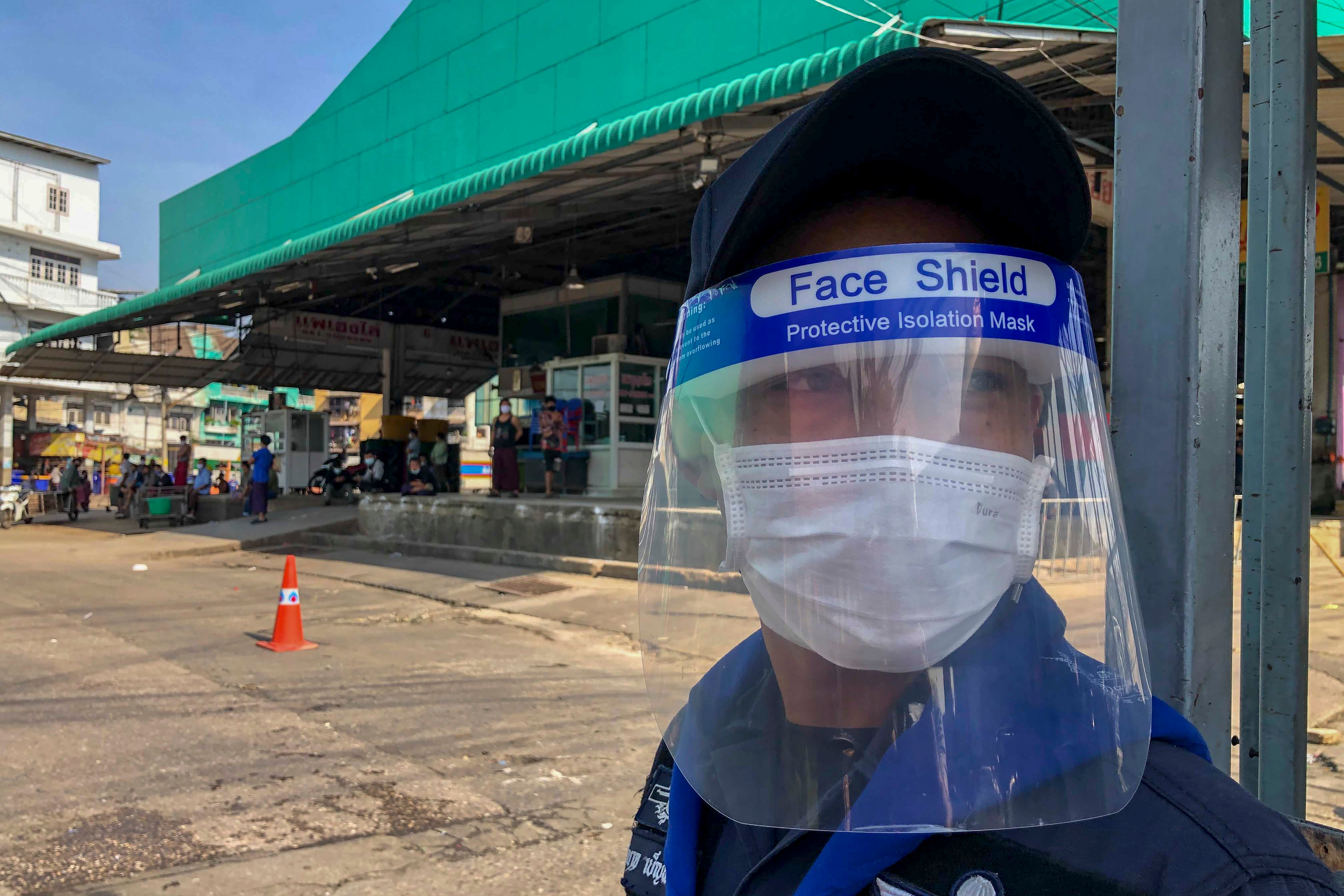Thailand confident coronavirus outbreak is controllable
Thailand’s government is confident it can contain a major coronavirus resurgence without a national lockdown

Your support helps us to tell the story
From reproductive rights to climate change to Big Tech, The Independent is on the ground when the story is developing. Whether it's investigating the financials of Elon Musk's pro-Trump PAC or producing our latest documentary, 'The A Word', which shines a light on the American women fighting for reproductive rights, we know how important it is to parse out the facts from the messaging.
At such a critical moment in US history, we need reporters on the ground. Your donation allows us to keep sending journalists to speak to both sides of the story.
The Independent is trusted by Americans across the entire political spectrum. And unlike many other quality news outlets, we choose not to lock Americans out of our reporting and analysis with paywalls. We believe quality journalism should be available to everyone, paid for by those who can afford it.
Your support makes all the difference.Thailand’s government is confident it can contain a major coronavirus resurgence without a national lockdown, instead relying on provincial controls as the outbreak mainly among migrant seafood workers continued to spread.
“I can assure that the government will do its best,” Prime Minister Prayuth Chan-ocha said in a live televised address after a meeting of the government’s COVID-19 coordinating center. “The Public Health Ministry confirms to me that it is controllable if everyone gives cooperation.”
Thailand generally has been seen as successful in combating the coronavirus due partly to its well-regarded public health infrastructure and people's adherence to mask-wearing and other protocols.
But cases have jumped significantly since an outbreak was detected last week among migrants from Myanmar working at a seafood market in Samut Sakorn, a province near the capital Bangkok Millions of low-wage jobs in Thailand are filled by workers from less affluent neighboring countries, especially Myanmar.
Since Sunday, more than 1,000 migrant workers have tested positive for the virus, along with Thais working or living near the seafood market, which supplies much of the country.
Contact tracers tracked possible cases by identifying vendors' major customers, and about 10,000 people at risk have been tested. Cases traced to the Samut Sakhon market have been found in 27 provinces, the government said.
Heath authorities on Thursday confirmed 67 new cases, bringing the nation's total to 5,829 including 60 deaths. New cases among migrant workers were not reported on Wednesday and Thursday, with the explanation that they were being rechecked.
The government's strategy to contain the outbreak is to impose restrictions by province.
Samut Sakhon is designated a “highly controlled” area, where there are field hospitals to isolate patients, non-essential businesses are closed, people are supposed to work from home and New Year’s celebrations are banned. The province is a center for industry, and some factories will be allowed to continue operating.
Bangkok falls into the second most serious category of “controlled.” Public establishments will have limited hours but can remain open. There will be no public New Year’s celebrations, and private celebrations should be limited in size. Most of the country, those provinces with fewer than 10 cases of COVID-19, fall into two categories of surveillance.
“The efforts of the last few days have paid off. Statistics are on a downward trend,” said Natapanu Nopakun, the English-language spokesman for government’s coronavirus-fighting agency. “The key word is ‘controllable.’”